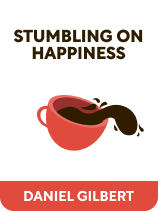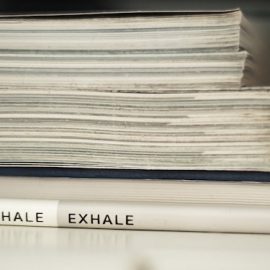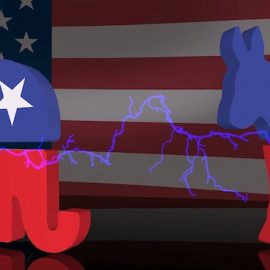

This article is an excerpt from the Shortform book guide to "Stumbling on Happiness" by Daniel Gilbert. Shortform has the world's best summaries and analyses of books you should be reading.
Like this article? Sign up for a free trial here .
Do you want to know how to make better decisions about your future? What common mistakes do people make when considering the future?
In his book Stumbling on Happiness, social psychology researcher Daniel Gilbert details six poor choices people make when planning for the future. By avoiding doing these things, you will be in a better position to make decisions that lead to happiness.
Here are the six poor choices you should avoid when making decisions.
1. You Think You’ll Feel in the Future as You Do Now
The first mistake you want to avoid when learning how to make better decisions is assuming that your future self will feel the same as your present self. According to Gilbert, you make choices about the future that are based on feelings you have now. Because how you’re feeling now may not reflect how you’d feel about the choice in the future, this can lead to poor decisions.
Your mind envisions the future using existing references (your current experiences and memories). Gilbert notes that when you’re considering a future choice, your mind pictures what that choice will look like using references from your past and present. You then have an emotional reaction to this picture in your mind, and this emotional reaction informs your decision—you’ll opt for the choice if you have a positive emotional reaction to the image of it.
Problems arise when your brain is already experiencing a strong emotional reaction to something in the present. In such cases, your brain focuses on your present feeling—ignoring the true future emotional reaction to the scenario you’ve imagined—and transposes it onto your imagined future scenario. You thus think your present feeling applies to the choice you’re considering for your future, even if your present emotion has nothing to do with the choice at hand. This can lead you to, say, reject a choice that would make you happy just because you’re feeling sad in the present.
For instance, imagine you’re considering moving to Miami. On the day you’re making the choice, you feel fairly neutral—you have no strong emotions in the present. When deciding whether or not to make the move, you conjure up an image of Miami as it appears in your memories: warm and sunny. This image makes you feel good—you love warm climates! Therefore, you conclude that you should move to Miami because doing so will likely make you feel good.
Now, imagine that you’re making this choice on a day when you’re incredibly angry due to a recent breakup. When you imagine Miami, your brain transposes your anger onto the mental image—you think that living in Miami would irritate you because it would be hot and uncomfortable all the time (even though really, you love the heat). You therefore decide against the move based not on how you’d actually feel about living in Miami, but based on how you’re feeling right now. This is a poor choice that sabotages an attempt at future happiness.
2. You Mispredict How Much Variety You’ll Want Over Time
You also make poor choices about the future because you mispredict the amount of variety you’ll want across long stretches of time in the future, writes Gilbert. You do this because, as with the first poor choice, you transpose your feelings about the present onto your vision of the future. You know that variety makes you happy in the short term, so you incorrectly think variety will make you happier over long periods of time.
Let’s break this down further: Most of us recognize that our enjoyment of something—playing ping-pong, for instance—decreases the more we do it. It therefore makes sense to vary what you do each day, by swapping ping-pong for tennis every other night, for example. You don’t enjoy tennis as much, but at least by regularly taking a break from ping-pong, your enjoyment of that sport remains high.
However, according to Gilbert, we mistakenly think we’ll also want variety across long stretches of time. In reality, when there are long gaps between occurrences—if you only play ping-pong once a week, for instance—your enjoyment of the activity remains high. But you mistakenly think it won’t, so you begrudgingly swap ping-pong for tennis every other week, even though you don’t really need to. This makes you less happy than sticking with ping-pong each week.
3. You Compare Future Choices to Choices in the Present and Past
The third poor choice about the future happens because when considering options for the future, you draw ineffective comparisons to the present and the past, writes Gilbert.
(Shortform note: We make poor comparisons in all areas of our lives, not just in thinking about the future, as Gilbert describes. For example, Barry Schwartz writes in The Paradox of Choice that we make ourselves unhappy by comparing our choices not to the present or past but to the choices of others. Such comparisons can erode our happiness by making us feel inferior to others.)
Let’s look in detail at two types of ineffective comparison:
Bad Comparison #1: Comparing to the Present, Rather Than the Future
The first bad comparison you make is comparing a choice to other choices that are currently available—not to the other choices you’ll have in the future. Your circumstances may change in the future, and a choice that looks good now compared to your other present options may not look so good later.
Here’s an example: You’re at a small furniture store, considering which of two couches to buy. Couch 1 is both cheaper and more attractive than Couch 2, so you purchase it. However, later that afternoon, you drive by a larger furniture store and see five other couches in the window, all of which are cheaper and more attractive than your just-purchased Couch 1. You made a poor choice because you compared Couch 1 only to the choices currently available—Couch 2—rather than considering that if you visit another store in the future, you might find better couches.
Bad Comparison #2: Comparing to the Past, Rather Than the Future
The second bad comparison you make is comparing the future to the past, writes Gilbert. If a choice is more attractive now than it was, say, two months ago, you might opt for that choice, even if a better choice might arise in the future.
For instance, you might purchase an ottoman for $200 because its price has been marked down from two months ago, making it a better choice now than it was previously. However, later that day, you find another ottoman online priced only at $150. Because you compared the $200 ottoman solely to its past price point, you think you got a good deal. In reality, you could have saved more money by considering that you might come across even cheaper ottomans in the future.
4. You Anticipate Regretting the Wrong Choice
According to Gilbert, the fourth type of poor choice about the future happens because you misjudge how much regret you’ll feel in the future and over what choice. Specifically, you mistakenly think you’ll regret a bold, risky decision and that you won’t regret a safe decision. Because you want to avoid the pain of regret, you often opt for the safe decision. In reality, you’re more likely to regret a safe decision than a bold one, claims Gilbert.
This error in reasoning occurs, argues Gilbert, because we think that if a big, risky choice goes wrong, we’ll feel terrible due to all that we’ve staked and lost. But this isn’t true: As we discussed in Part 3.2, your brain protects you from adversity following big mistakes by finding meaning in what happened and convincing you it happened for a reason. So, even if the risk goes wrong, you won’t feel bad. You’re more likely to feel bad if a safe bet goes wrong, as it’ll likely lead to only minor inconvenience, and as discussed, your brain can’t protect you from that.
Let’s look at an example to illustrate this idea: You’re deciding between starting your own business and staying at your current job that you don’t enjoy. Starting your own business is the riskier decision, and you vividly imagine the regret you’ll feel if you fail. Meanwhile, staying at your current job elicits less fear of regret because the risk is smaller. To avoid regret, you therefore opt to stay at your current job.
This is, from a happiness-maximization perspective, the wrong decision. Even if your risky choice to start your own business fails and leads to adversity, your automatic happiness-protecting response will kick in: You’ll derive meaning and learning from the experience, and you won’t regret it. If you stay in your current job, on the other hand, you’ll never be unhappy enough to trigger that happiness-protecting response. You’ll therefore languish in a state of moderate unhappiness, which you’ll regret.
5. You Opt for Freedom When Lack of Freedom Makes You Happier
The fifth type of poor choice you make concerns your desire for freedom: According to Gilbert, you opt for choices that grant you greater freedom in the future, when, in reality, the choices that limit your freedom make you happier.
You’re happier when you have less freedom thanks again to your automatic happiness-protecting response, writes Gilbert. This response triggers when you have little power and few options so that despite this adversity you can still be happy. However, you’re not aware this response will kick in. Therefore, you always make the choice that keeps your options open to avoid the discomfort you think lack of choice will bring.
In reality, having many options makes you unhappy because you constantly doubt yourself, claims Gilbert: Should you choose A or B? Was A the right choice? Should you switch to B? When you’re not locked into a choice, your mind second-guesses, and this produces unhappiness.
Let’s look at an example: You’re deciding between an eight-year biology research program in a remote rainforest that you can’t leave for the duration of the program and an eight-year local program that you can leave if you don’t like it. Which program will you choose?
Most will opt for the second program because they feel it will make them happier in the future to have the option to quit. But, the first program will probably make you happier. Even if you’re initially miserable in the rainforest, your happiness-protecting response will kick in as a protective mechanism. You’ll thus derive meaning and joy from being in the rainforest—for instance, by believing that you’re growing as a person. Meanwhile, if you choose the other program, you’ll wonder if it was the right choice or if you should use your ability to quit and look for something better.
6. You Prefer Explanations When Mystery Often Makes You Happier
The last poor choice you make, writes Gilbert, is thinking you’ll be happier with rational explanations for occurrences than with unsolved or mysterious ones. You think you prefer rational explanations because often, these explanations benefit you. Explaining rationally how or why something occurred allows you to learn and grow from it: For example, if you get into a fender-bender and explain it as being the result of the other driver’s incorrect turn signal, you learn to be wary of turn signals.
Additionally, says Gilbert, you can often rationally explain occurrences in ways that let you feel happier about them. For instance, your explanation of the fender-bender places the fault in the other driver’s hands, not yours, which makes you happy.
However, there’s another angle to consider, claims Gilbert: While humans benefit from creating explanations for incidents, we also benefit from not doing so. This is because unexplained events leave you pondering them for longer than events you explain, which is in itself a pleasurable activity. However, because we’re not conscious of the pleasure of pondering a mystery, says Gilbert, we make choices about the future that provide us with explanations, not uncertainty.
Here’s an example: A literary magazine has accepted your short story, and you receive feedback from the magazine. You’ll likely devour this information, as you feel it will make you happy to hear what you did well. While this may be true, you might derive more happiness from not reading the feedback because the mystery of why you were accepted will cause you to think about it for longer, prolonging your pleasure.

———End of Preview———
Like what you just read? Read the rest of the world's best book summary and analysis of Daniel Gilbert's "Stumbling on Happiness" at Shortform .
Here's what you'll find in our full Stumbling on Happiness summary :
- A look at how your brain fabricates your reality leading you to make bad decisions
- The six specific types of bad choices people make
- How to improve your decision-making in the future






